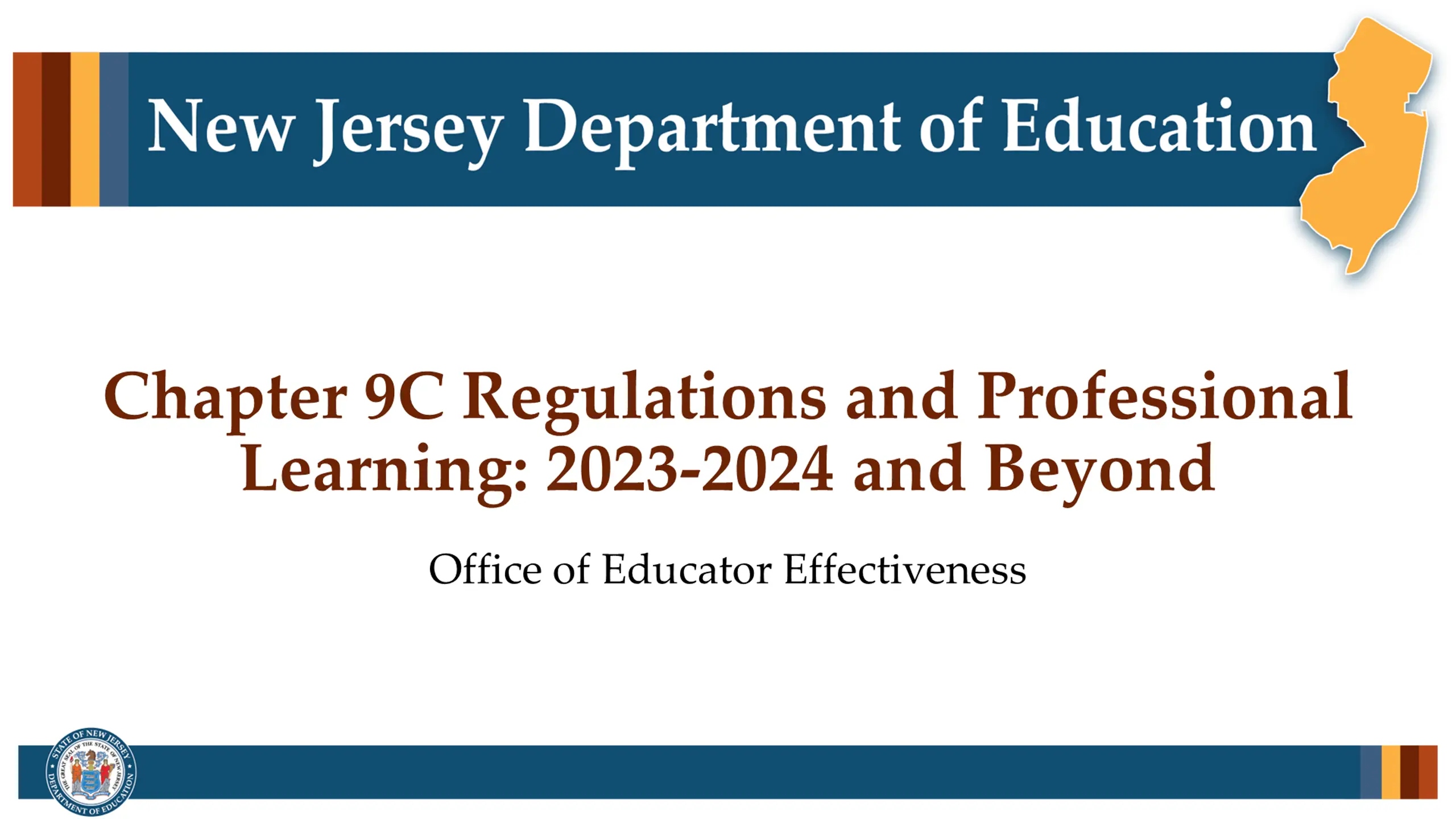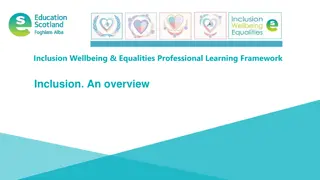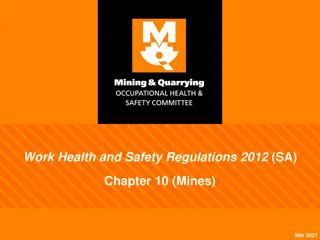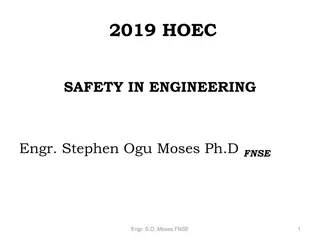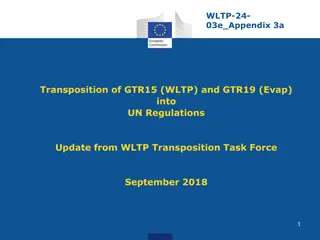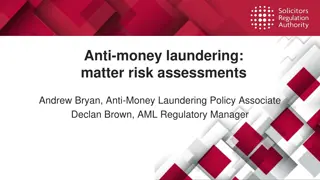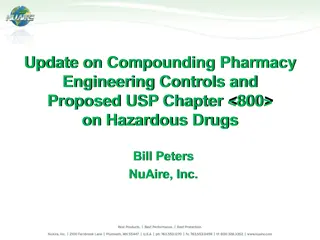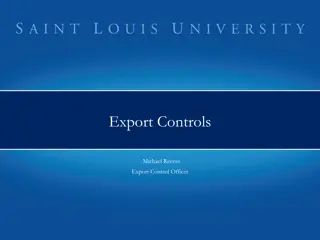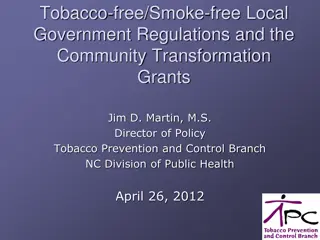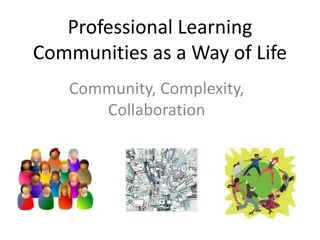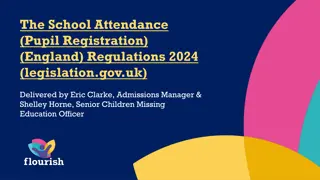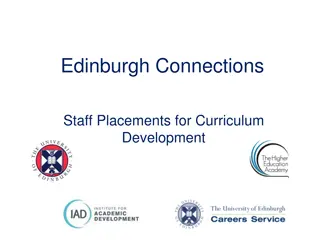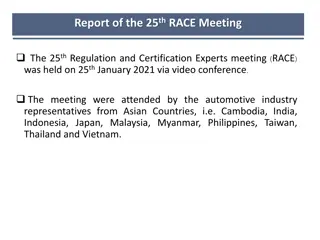Chapter 9C Regulations and Professional Learning: 2023-2024 and Beyond
The key changes to Chapter 9C regulations and discover how to leverage the New Jersey Standards for Professional Learning to support educator growth.
Download Presentation

Please find below an Image/Link to download the presentation.
The content on the website is provided AS IS for your information and personal use only. It may not be sold, licensed, or shared on other websites without obtaining consent from the author.If you encounter any issues during the download, it is possible that the publisher has removed the file from their server.
You are allowed to download the files provided on this website for personal or commercial use, subject to the condition that they are used lawfully. All files are the property of their respective owners.
The content on the website is provided AS IS for your information and personal use only. It may not be sold, licensed, or shared on other websites without obtaining consent from the author.
E N D
Presentation Transcript
Chapter 9C Regulations and Professional Learning: 2023-2024 and Beyond Office of Educator Effectiveness
Session Objectives By the end of this session participants will be able to: Understand the key changes to Chapter 9C (Professional Development) regulations. Explain the rationale behind the key changes. Understand how to leverage the New Jersey Standards for Professional Learning (NJSPL) to support individual and collective educator growth. 2
Underlying Principles of the Work of Professional Learning in the Office of Educator Effectiveness 1. Educator development occurs along a continuum of rigorous pre- professional preparation, certification, and professional development to prepare educators. 2. An effective professional learning system continuously serves educators individual and collective professional learning and practice in support of positive learning outcomes for all of New Jersey s students. 3. An effective evaluation system drives and supports the continuous growth of educators. 3
Major Changes to Chapter 9C 1. Strengthening Support for Novice Teachers 2. Ensuring the District Mentoring Plan is a Collaborative and Transparent Process 3. Increased Specificity of What Counts in Professional Development for Teachers 4. Required Professional Development Plans for Educational Interpreters and Preschool Paraprofessionals 5. Revised New Jersey Standards of Professional Learning 4
Strengthening Support for Novice Teachers: Regulatory Revisions Novice teachers are now required to receive more frequent and targeted support. 1. Weekly, in-person contact time for a minimum of 30 weeks. 2. Increased meeting frequency to twice per week for novice provisional teachers holding a Certificate of Eligibility with Advanced Standing (CEAS) or a Certificate of Eligibility (CE). Those holding a CEAS: 2x/week for the first 4 weeks. Those holding a CE: 2x/week for the first 8 weeks. 3. Nontenured teachers in their first year of employment will be provided individualized support and activities based on the nontenured teacher s individual needs. 5
Strengthening Support for Novice Teachers: A Reflection Revised Regulations Local Impact 1. Weekly, in-person contact time for a minimum of 30 weeks. Does your program already meet these requirements? 2. Increased meeting frequency to twice per week for novice provisional teachers holding a CEAS or a CE. What could the increased time be used for? Those holding a CEAS: 2x/week for the first 4 weeks. Those holding a CE: 2x/week for the first 8 weeks. What process could be used to ensure compliance with the third revision? 3. Nontenured teachers in their first year of employment will be provided individualized support and activities based on the nontenured teacher s individual needs. 6
Ensuring the District Mentoring Plan is a Collaborative and Transparent Process: Regulatory Revisions Updating the district mentoring plan should be a collaborative and transparent process. 1. The district mentoring plan shall include formal and informal resources and support to guide novice provisional teachers throughout the entire provisional period. 2. The chief school administrator (CSA) or designee shall: Collaborate annually with each School Improvement Panel (ScIP) to review the district mentoring plan, consider ways to support the plan at the school level, and take steps to ensure that all new teachers are receiving the necessary professional support. Make available to staff an electronic copy of the current district mentoring plan. 3. Each ScIP shall oversee the school-level implementation of the district mentoring plan and shall communicate the plan to all nontenured teachers and their mentors. 7
Ensuring the District Mentoring Plan is a Collaborative and Transparent Process: A Reflection Revised Regulations Local Impact 1. The district mentoring plan shall include formal and informal resources and support to guide novice provisional teachers throughout the entire provisional period. Does your program already meet these requirements? What is one way in which these revisions could strengthen a district mentoring plan? 2. The CSA or designee shall: Collaborate annually with each ScIP to review the district mentoring plan, consider ways to support the plan at the school level, and take steps to ensure that all new teachers are receiving the necessary professional support. Make available to staff an electronic copy of the current district mentoring plan. What might these regulations look like in practice? 3. Each ScIP shall oversee the school-level implementation of the district mentoring plan and shall communicate the plan to all nontenured teachers and their mentors. 8
Additional Changes: Increased Specificity of What Counts in Professional Development for Teachers Ensuring what counts in professional development meets the regulatory intent. 1. Each teacher must have at least 20 hours per year of qualifying experiences that support student achievement, including achievement in academic, physical, social, and emotional learning. 2. Professional learning experiences may include in-person, virtual or remote courses. 9
Additional Changes: Required Professional Development Plans for Educational Interpreters 1. An individual PDP must include at least 10 hours per year of qualifying experiences that support improved practice; 2. The 10-hour annual qualifying experience shall be based on the length of full- time employment and reduced by a pro rata share reflecting part-time employment, or an absence, including the use of family or medical leave; 3. The content of each individual PDP shall be developed by the educational interpreter s supervisor in consultation with the educational interpreter; and 4. The PDP requirements applicable to teachers at N.J.A.C. 6A:9C-4.4(c), (e) through (h), and (j) shall apply to educational interpreter PDPs. 10
Additional Changes: Required Professional Development Plans for Preschool Paraprofessionals 1. Preschool paraprofessionals shall be guided by an individual PDP that must include at least 20 hours per year of qualifying experiences that support improved practice; 2. The 20-hour annual qualifying experience shall be based on the length of full-time employment and reduced by a pro rata share reflecting part-time employment, or an absence, including the use of family or medical leave; 3. The content of each individual PDP shall be developed by the preschool paraprofessional s supervisor in consultation with the paraprofessional; 4. The PDP shall include coaching by a preschool instructional coach, a preschool intervention and referral specialist (PIRS), and any other coach the school district assigns to work with the preschool paraprofessional; and 5. The PDP requirements applicable to teachers at N.J.A.C. 6A:9C-4.4(c), (e) through (h), and (j) shall apply to preschool paraprofessionals. 11
Implementing the Changes: A Reflection Strengthening Support for Novice Teachers For each change: Ensuring the District Mentoring Plan is a Collaborative and Transparent Process 1. Are you already in compliance? 2. If not, what immediate next steps will need to be completed? Increased Specificity of What Counts in Professional Development for Teachers Required Professional Development Plans for Educational Interpreters and Preschool Paraprofessionals 3. What questions do you have? 12
Leveraging the New Jersey Standards for Professional Learning (NJSPL) in Supporting Educator Growth 13
The Revised New Jersey Standards for Professional Learning (NJSPL) Based on Learning Forward s research. The revised standards continue to support ongoing, embedded professional learning with a more explicit focus on equity. The cyclical and iterative nature of the standards work within a framework of three categories to create high- quality professional learning that: Results in improved educator practices and improved student results; and Align to current evidence-based practices. 14
Rigorous Content for Each Learner Professional learning results in equitable opportunities and excellent outcomes for all students when: Equity Practices: Educators understand their students historical, cultural, and societal contexts; embrace student assets through instruction; and foster relationships with students, families, and communities; Curriculum, Assessment, and Instruction: Educators prioritize high- quality curriculum and instructional materials for students, assess student learning, and understand curriculum and implement through instruction; and Professional Expertise: Educators apply the NJSLS and research to their work, develop the expertise essential to their roles, and prioritize coherence and alignment in their learning. 15
Transformational Processes Professional learning results in equitable opportunities and excellent outcomes for all students when: Equity Drivers: Educators prioritize equity in professional learning practices, identify and address their own biases and beliefs, and collaborate with diverse colleagues; Evidence: Educators create expectations regarding, and build capacity for, the use of evidence from multiple sources to plan educator learning, and measure and report the impact of professional learning; Learning Designs: Educators set relevant and contextualized learning goals, ground their work in research and theories about learning, and implement evidence-based learning designs; and Implementation: Educators understand and apply research on change management, engage in feedback processes, and implement and sustain professional learning. 16
Conditions for Success Professional learning results in equitable opportunities and excellent outcomes for all students when: Equity Foundations: Educators establish expectations for equity, create structures to ensure equitable opportunities for access to learning, and sustain a culture of support for all staff; Culture of Collaborative Inquiry: Educators engage in continuous improvement, build collaboration skills and capacity, and share responsibility for improving learning for all students; Leadership: Educators establish a compelling and inclusive vision for professional learning, sustain coherent support to build educator capacity, and advocate for professional learning by sharing the importance and evidence of the impact of professional learning; and Resources: Educators allocate resources for professional learning, prioritize equity in their resource decisions, and monitor the use and impact of resource investments. 17
Aligning Individual Professional Plans to the NJSPL Professional development planning is required for individual educators. The Department provides optional templates with examples to assist districts in planning. Individual professional development plans must align with the NJSPL. The following slides provide: The basic requirements for individual professional development planning. Exemplars of an area of one teacher and one leader professional development plan displaying alignment to various NJSPL standards. 18
General Requirements for Individual Professional Development Planning 1. Planning Basics: PDPs are in place by October 31 or within 25 days of receiving a summative score Replaced by a Corrective Action Plan in the case of a less-than-effective summative rating the prior year (<2.65) 2. Teachers: One goal linked to results from individual performance evaluation One goal linked to district, school, team or individual goals 3. Leaders: Derived from performance evaluation Address specific individual, school, or school district goals 19
Principal Professional Development Planning Exemplar Which NJSPL standard(s) is/are highlighted in the following goal, rationale and professional learning activities? Provide a rationale for each standard chosen. 20
Teacher Professional Development Planning Exemplar Which NJSPL standard(s) is/are highlighted in the following goal and administrator support activities? Provide a rationale for each standard chosen. 21
Aligning School and District Professional Plans to the NJSPL Professional development planning is required for districts and schools. The Department provides optional templates with examples to assist districts in planning. District and school professional development plans must align with the NJSPL. The following slides provide: The basic requirements for district and school professional development planning. Exemplars highlighting an area of one district and one school professional development plan displaying alignment to various NJSPL standards. 22
General Requirements for School and District Professional Development Planning Districts: 1. The CSA or their designee, shall oversee the development and implementation of the school district plan to address school district s professional development needs. Assess the learning needs of students, teachers, and school leaders based on educator evaluation data, school-level plans, and data from school- and district level performances in developing the plan. 2. Schools: The principal shall oversee the development and implementation of a plan for school level professional development. Includes a description of school-level and team-based professional learning aligned with identified school goals; and Includes teacher and student learning needs; and All teachers receive the necessary opportunities, support, and resources to complete individual professional development requirements. 23
District Professional Development Planning Exemplar Which NJSPL standard(s) is/are highlighted in the following goal, rationale and activities? Provide a rationale for each standard chosen. 24
School Professional Development Planning Exemplar Which NJSPL standard(s) is/are highlighted in the following resources and implementation considerations? Provide a rationale for each standard chosen. 25
Aligning PD to the NJSPL: A Reflection 1. Consider your role in your school and/or district. 2. Identify where you believe your school and/or district is in leveraging NJSPL in constructing professional development plans. 3. What is/are one or two next steps you need to consider in aligning professional development to the NJSPL? 26
Thank You! New Jersey Department of Education: nj.gov/education Office of Educator Effectiveness EduEval@doe.nj.gov Follow Us! Facebook: @njdeptofed Twitter: Instagram: @NewJerseyDoe @NewJerseyDOE 27
